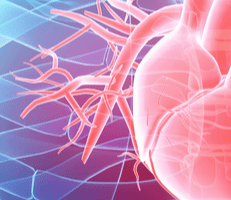Tachycardia

Phoenix Heart
Cardiologists located in Glendale, AZ & Goodyear, AZ
Tachycardia refers to a fast heart rate — a highly-treatable but potentially life-threatening condition. The skilled cardiologists at Phoenix Heart have extensive experience diagnosing and treating all types of tachycardia, promoting your heart health, and supporting your overall well-being. If you have signs of tachycardia or want a risk assessment, request an appointment online today or call the nearest office. Phoenix Heart welcomes patients at six locations in Glendale, Goodyear, Scottsdale, Anthem, Black Canyon City, Cottonwood, and Avondale, Arizona.
Tachycardia Q&A
What is tachycardia?
Tachycardia is a type of arrhythmia defined by a fast heart rate that’s 100 beats per minute or higher. For comparison, a normal heart rate for adults is 60-100 beats per minute. Along with a rapid heart rate, you may also have an irregular heart rhythm.
You can develop several types of tachycardia, including:
- Atrial fibrillation: fast, irregular heartbeat originating in the heart’s upper chambers
- Atrial flutter: rapid heart rate of 250-350 beats per minute in the upper chambers
- Paroxysmal atrial tachycardia: fast, regular heart beat in the upper chambers
- Paroxysmal supraventricular tachycardia: fast, regular beat above the lower chambers
- Ventricular tachycardia: fast, regular beating in the lower heart chambers
- Ventricular fibrillation: the lower chambers rapidly quiver
Ventricular fibrillation is the most dangerous type of tachycardia because it causes sudden cardiac arrest.
What causes tachycardia?
Tachycardia develops for numerous reasons, including:
- Coronary artery disease
- Cardiomyopathy (heart muscle disease)
- High or low blood pressure
- High caffeine consumption
- Alcohol or drug abuse
- Smoking or tobacco use
- Overactive thyroid (hyperthyroidism)
- Electrolyte imbalance
An electrolyte imbalance means you have high or low levels of potassium, sodium, magnesium, or calcium.
What are the symptoms of tachycardia?
Depending on the type of tachycardia, you may not feel the change in your heart rate. Or you may have several possible symptoms because a rapidly beating heart can’t send enough blood out to your body.
You may experience:
- Palpitations (sensation of a pounding or racing heart)
- Chest pain
- Fainting
- Lightheadedness
- Shortness of breath
You can also check your pulse at your wrist or the side of your neck.
How is tachycardia treated?
Your treatment depends on the type of tachycardia and its underlying cause. After completing a physical exam and running diagnostic tests, like an electrocardiogram (ECG), echocardiogram, or tilt table test, your provider recommends one or more of the following:
- Medications
- Vagal maneuvers
- Cardioversion
- Catheter ablation
- Pacemaker
- Implantable cardioverter-defibrillator (ICD)
You may also need treatment for high blood pressure or high cholesterol, beginning with lifestyle modifications like eating a healthy diet, getting exercise, losing weight, and limiting the amount of caffeine and alcohol you drink.
Some people may need surgery to stop abnormal electrical signals responsible for their tachycardia.
Don’t wait to seek help for tachycardia. Call Phoenix Heart or request an appointment online today.
Cardiology Services
-
 Cardiovascular Labmore info
Cardiovascular Labmore info -
 Congestive Heart Failuremore info
Congestive Heart Failuremore info -
 Electrophysiologymore info
Electrophysiologymore info -
 Heart Attackmore info
Heart Attackmore info -
 Nuclear Medicinemore info
Nuclear Medicinemore info -
 Clinical Researchmore info
Clinical Researchmore info -
 Structural Heart Defectsmore info
Structural Heart Defectsmore info -
 Ultrasound Testingmore info
Ultrasound Testingmore info -
 Echocardiogrammore info
Echocardiogrammore info -
 Vein Centermore info
Vein Centermore info -
 Women’s Heart Healthmore info
Women’s Heart Healthmore info -
 High Blood Pressure/Hypertensionmore info
High Blood Pressure/Hypertensionmore info -
 High Cholesterolmore info
High Cholesterolmore info -
 Coronary Artery Diseasemore info
Coronary Artery Diseasemore info -
 Stress Testingmore info
Stress Testingmore info -
 Weight Lossmore info
Weight Lossmore info -
 Arrhythmiamore info
Arrhythmiamore info -
 Atrial Fibrillationmore info
Atrial Fibrillationmore info -
 Peripheral Vascular Disease (PVD)more info
Peripheral Vascular Disease (PVD)more info -
 Chest Pain/Anginamore info
Chest Pain/Anginamore info -
Lymphedema & Phlebolymphedemamore info
-
Compression Stockingsmore info
-
Diagnostic Testingmore info
-
Interventional Cardiologymore info
-
Peripheral Arterial Diseasemore info
-
Bradycardiamore info
-
Tachycardiamore info
-
Ventricular Fibrillationmore info
-
Weight Management with Enara Healthmore info




















